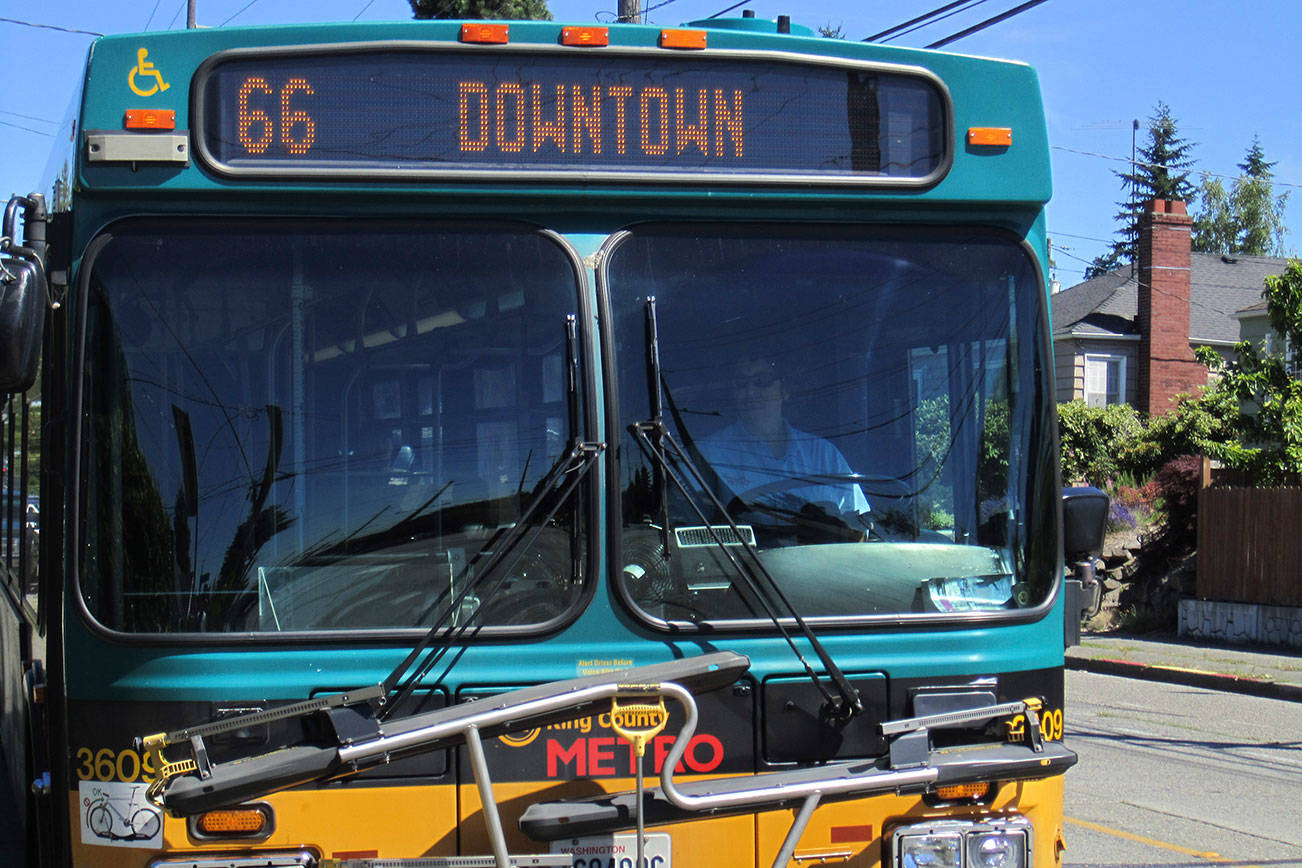An influx of cars on the streets and pedestrians on the sidewalks comes with the territory as Seattle has become one of the fastest growing cities in recent years. Mayor Jenny Durkan’s recently proposed 2019-2020 budget seeks to mitigate the impact of the city’s rapid growth by enhancing access to affordable transportation, but a newly formed coalition argues that the city isn’t acting quickly or effectively enough.
Known as Move All Seattle Sustainably (MASS), the group of climate action and transportation organizations consists of Seattle Transit Blog, 500 Women Scientists Seattle, Cascade Bicycle Club, Transit Riders Union, Seattle Neighborhood Greenways, Seattle Subway, Sierra Club Seattle Group, The Urbanist, and 350 Seattle. As one of its inaugural actions, MASS sent a missive to Durkan and the Seattle City Council on Oct. 16, urging them to prioritize the creation of safe intersections for pedestrians, more right-of-way to buses, and designated bike lanes.
“We’ve come together out of a sense of urgency. We see the climate crisis, we see traffic congestion and unsafe streets and unclean air, and we know the city is not acting nearly fast enough to transform our transportation system. I hope people who care about these issues will get involved. There are many great organizations in the MASS coalition — people can join us and help push this work forward,” Katie Wilson, general secretary of the Transit Riders Union, said in an email to Seattle Weekly. Adding to the sense of urgency is the “period of maximum constraint,” which Seattle transportation planners have coined as the next three years in which an increase in public and private transportation projects will further congest the city.
Some of the group’s suggestions include the city quickly locating funding for sidewalk construction and maintenance, and to implement the “Basic Bike Network” — a resolution passed in July by the Seattle City Council that sets timelines for connecting isolated bike lanes. It also asks city leaders to expedite the painting of bus-only lanes throughout Belltown, and to create affordable fare programs to make public transit more accessible to low- or no-income passengers. The coalition also urged the city council to include a proviso in the city’s Intelligent Transportation Systems — a program that funds communication technologies — which stipulates money will not be devoted to adaptive signals until they are improved to prioritize pedestrians’ speedy and safe passage across the street. Additionally, they’ve asked leaders to divert $350,000 from the communication technologies budget to a people-centered pilot program that uses diverters to slow down traffic.
“We need all the councilmembers and Mayor Durkan to commit to a dramatic mode-shift. With people moving to Seattle in the thousands and tens of thousands, it’s a straightforward matter of geometry that we just can’t keep adding cars. Even someone who for whatever reason feels they really have to drive must also recognize that their commute will become unworkable unless we get most other people off the road,” Wilson wrote. “The Period of Maximum Constraint is looming large right now, so … the most pressing concern is making public transit fast and reliable so that we can keep large numbers of people moving to and through downtown. That means prioritizing right-of-way and dedicated lanes for buses. We need the mayor’s leadership on that, but the council can help too.”
The city, on the other hand, argues that the proposed budget already makes significant improvements to transit infrastructure. For instance, $1 million in the budget will be allocated to increasing access to transportation for low-income riders; and $26.7 million will go toward pedestrian and bike safety, as well as improvements for Vision Zero — a city proposal that aims to eliminate serious injuries and traffic deaths by 2030.
“To help meet the demands of our growing city, address climate change, and ensure Seattle is a city of the future, Mayor Durkan’s proposed budget makes significant investment in our transit and Seattle’s transportation system — everything from focusing on essential services like repairing sidewalks to supporting our partnership with Sound Transit to delivering more light rail to Seattle as soon as possible. Mayor Durkan will continuing listening to the community and working to help build a city of the future with more transit, fewer cars, and less carbon pollution,” Durkan spokesperson Mark Prentice said in an email.
In the meantime, coalition members will meet with councilmembers, and plan to testify at the 5:30 p.m. Oct. 23 budget hearing at City Hall.
mhellmann@seattleweekly.com








